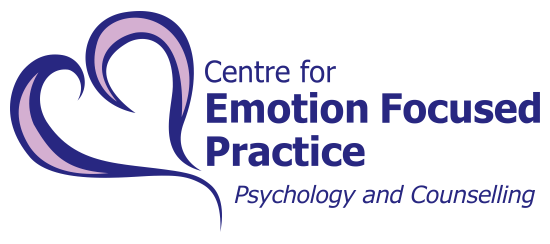Eating Disorders: How to Get Your Life Back

Bingeing
When a person is obsessed with weight and the amount of food that he or she eats and thinks about little else, then he or she may have an eating disorder. There are many types of eating disorders, the most common of which are anorexia nervosa, bulimia nervosa, and binge-eating disorder (compulsive overeating). There are also other eating disorders and in general they are classified as EDNOS (eating disorders not otherwise specified), where the disorder has the characteristics of both anorexia as well as bulimia, and pica, where the person craves and eats non-food items such as paper, chalk, ash, paint, glue, etc. Pica generally occurs in children and may indicate the lack of certain nutrients in their diet. If this behaviour continues, you should ask a professional for support.
An eating disorder affects the overall health of the person, and in severe cases, can lead to death.
While anorexia and bulimia are disorders that are predominantly associated with women, they are not uncommon in men. Binge eating, however, seems to affect both men and women with no bias.
What Causes Eating Disorders?
People with eating disorders, in some cases, have a low self-esteem and this may be the root cause. People with a negative body image – those with a distorted view of their body – are the most susceptible. The society reinforces a certain body type as desirable. From a young age, peer pressure and the messages thrust by the media play a part in promoting the desire for a thin Barbie doll-like body in girls and a muscle-bound body in boys.
Psychological problems, such as depression, can also trigger an eating disorder. For instance, a person who is feeling low, stressed out, or having emotional or relationship issues may turn to eating for comfort. As a friend of mine used to ask, “Are you eating for metabolic or emotional nutrition?”
Researchers have shown the more developed a country is, the more the incidence of people with eating disorders. (How many of you know someone with an eating disorder?)
There also appears to be a genetic link: If you have a close relative (such as parents, siblings, aunts, uncles, or cousins) with an eating disorder, more is the chance of you getting it as well.
Anorexia nervosa

Cooking for Others but Eating Nothing
Anorexic people are typically underweight, but they are always in the fear of gaining weight. These people, in many cases, are also obsessed with perfectionism.
Many psychologists consider that anorexia should not be treated as just any typical eating disorder but as a serious illness that should be staged in accordance to the severity.
Anorexia can cause frequent infections, amenorrhea, fertility issues, complications during pregnancy (including miscarriage, c-section, babies born with birth defects or low birth weight, and postpartum depression in the mother), stunted growth in teenagers, decreased bone density, skin problems, hormone problems, neurological conditions (seizures, numbness and tingling, disorganized thought process), heart diseases including decreased size of the heart muscles, bradycardia (from electrolyte imbalance due to starvation and dehydration), low blood pressure, and reduced blood flow, and in the final stages of the disorder, multi-organ failure leading to death.
Psychological effects of anorexia include anxiety and depression, along with suicidal tendencies in many cases. Research shows that a significant number of deaths in anorexia are due to suicide and one in five patients tries to end his or her life. Substance abuse is also very common in people with anorexia.
Here are some typical symptoms of anorexia:
- Refusing to eat or fasting/dieting excessively
- Fear of gaining weight
- Distorted perception of one’s body weight
- Thin and fragile appearance
- Exercising excessively
- Constipation
- Dry skin
- Amenorrhea or irregular menstruation
- Dehydration
- Flat affect
Treatment for Anorexia
Anorexia is a very difficult disorder to treat, with a very slow recovery time (as much as 5-6 years in severe cases), though it is an area with extensive research and a psychologist in conjunction with a doctor can make the difference to an anorexic’s life. The chance of recurrence is also high and the patients never completely lose the characteristics of the disorder; they still continue to wish to be thin and are particular about their looks. Which is why treating as early as possible is the best option. A team approach is indicated for the management of anorexia. Treatment of the medical comorbidities of the disorder, nutritional rehab, and psychological counselling are all important and necessary. Hospitalization is essential if the weight is below 30% of normal, if the patient is suicidal, and if there are severe medical complications.
Psychological treatment for anorexia depends on the individual. In adults, a therapy that motivates in an emotion-focused and empathic setting is beneficial. In children and teenagers, family therapy forms the core.
Bulimia nervosa
People who are bulimic tend to binge eat and then purge the food by exercising, self-induced vomiting, or by using laxatives. Bulimic people are either overweight or may have normal weight. People with bulimia tend to be self-destructive, especially teenagers taking to smoking or alcohol. Impulsive behaviours such as sexual promiscuity, shoplifting, and self-injury like cutting oneself are common in women with bulimia.
Some typical symptoms of bulimia are:
- Over-eating and later fasting, dieting, and exercising excessively
- Using the restroom during or after eating
- Self-induced vomiting
- Distorted perception of one’s body (negative body image)
- Low self-esteem
- Damaged teeth, gums, and oesophagus, with swallowing problems
- Swollen salivary glands
- Amenorrhea or irregular menstruation
- Dehydration
- Gastrointestinal problems
Treatment for Bulimia
Hospitalization may be indicated in bulimia if it is accompanied by anorexia or if major depression is present. In most cases though, psychiatric counselling with family therapy can help bring bulimia under control. At the Centre for Emotion Focused Practice, PEEFT is the treatment of choice and it is effective with bulimia. As in anorexia, the chance of recurrence of bulimia is ever-present. Ongoing counselling and support groups can help check recurrence.
Binge Eating Disorder
People who are binge eaters are compulsive overeaters, but do not have a compensatory mechanism like purging the food or exercising. These people eat long after they feel sated or eat when they are not hungry. People who are binge eaters may have normal weight – bordering on overweight or could even be obese. Binge eating is more often triggered when a person on a diet suddenly loses control, gives up on the diet, and starts eating some favourite food item that he or she has been craving for some time. Some typical symptoms of binge eating are:
- Over-eating
- Preferring foods rich in sugar or fat
- Feeling disgusted with oneself after a binge eating episode
- Feeling guilty about overeating, and then eating again to overcome the guilt
- Hoarding treats
- Eating for no reason or eating for comfort
- Eating quickly and eating a lot
- Low self-esteem
Treatment for Binge Eating Disorder
With binge eaters more often falling in the obese and overweight category, the treatment is three-fold:
- Behavioural weight-loss management with nutrition counselling for developing a healthy attitude towards weight and diet
- Emotion-focused therapy for addressing self-image issues and other accompanying psychological problems such as depression and anxiety
- Group therapy for ongoing support
The patient will also benefit from learning mindful eating techniques and opting for family and interpersonal therapy to help heal problems with relationships.
Does Your Loved One Have an Eating Disorder?
People with eating disorders may not realise that they have a problem. For example, an anorexic person is obsessed about staying slim and may refuse to eat to the point of starvation. The person may even resist treatment.
On one hand, eating disorders are tough to overcome without support. On the other hand, it can be difficult to determine if the person is dieting or if he or she indeed has an eating disorder. Things can get especially tricky if you are a parent; your son or daughter may just be trying out a vegan diet, for instance. Nonetheless, you can look out for some of these signs if you are worried that your loved one may have an eating disorder:
- Avoiding meals frequently
- Cooking for others, but refusing to eat by giving some lame excuse
- Refusing to eat in public
- Eating low-calorie items
- Eating very, very slowly
- Constantly complaining about being fat (especially when the person is actually thin)
- Checking the mirror frequently
- Using weight loss pills, diuretics, laxatives, etc.
- Eating excess sweet or fatty foods
- Eating frequently
- Preferring to eat alone
- Leaving the table in the middle of a meal to use the bathroom
Outlook for People with Eating Disorders
The outlook for anorexia may seem bleak with the very slow response time and the patient not entirely being cured of the inherent tendency to look thin. However, without treatment, the patient may have serious medical and psychological repercussions. Hence, despite the slow turnaround, with motivation and therapy, the person can slowly get regain control of his or her life.
For bulimia and binge eating too, with proper treatment and continued motivation from family and support groups, the affected person can learn healthy eating patterns and live a normal life.
If you are looking for help, whether for yourself or for a loved one, the psychologists at the centre can assist in exploring underlying issues through therapy. Please visit practitioners’ page to find out more, or call (03) 9820-5577 for an appointment or to make enquiries.
Related Articles
- Weight Management: Tracking Wellness and Not Weight Loss
- Eating Disorders in Adolescence
- Body Image
- Fed Up? A Mindful Eating Group





